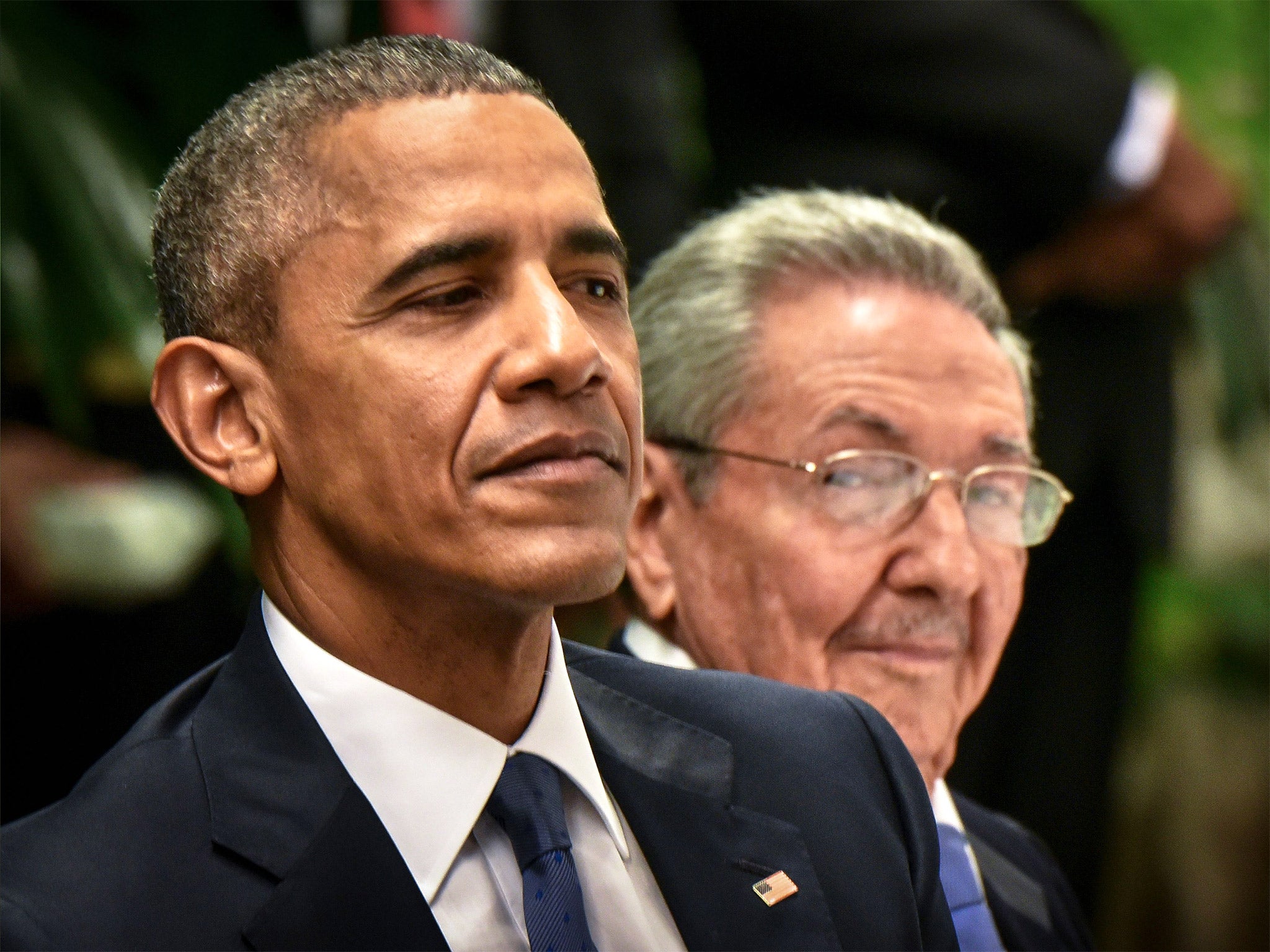As a Cuban exile, here is what I think of Obama’s visit to my country
It’s not uncommon for a Cuban family to have close relatives who lost their lives trying to escape across the sea to America. Cuba has a long way to go - but this might be a start

Your support helps us to tell the story
From reproductive rights to climate change to Big Tech, The Independent is on the ground when the story is developing. Whether it's investigating the financials of Elon Musk's pro-Trump PAC or producing our latest documentary, 'The A Word', which shines a light on the American women fighting for reproductive rights, we know how important it is to parse out the facts from the messaging.
At such a critical moment in US history, we need reporters on the ground. Your donation allows us to keep sending journalists to speak to both sides of the story.
The Independent is trusted by Americans across the entire political spectrum. And unlike many other quality news outlets, we choose not to lock Americans out of our reporting and analysis with paywalls. We believe quality journalism should be available to everyone, paid for by those who can afford it.
Your support makes all the difference.After the fall of the Soviet Union conditions on the island of Cuba drastically deteriorated. Grocery stores were consistently empty, basic necessities were increasingly scarce, and delinquency amplified as people grew desperate.
As a result some 35,000 Cubans, my family and I included, took to the sea in small boats, homemade rafts, inner tubes and refurbished vehicles in what has come to be known as the Balsero Crisis.
Sadly, although there are now over a million Cubans living in the U.S as a result of risking their lives at sea, thousands died in the attempt. It’s not uncommon for a Cuban family to have relatives who just never made it.
This deep-rooted pain has led many Cuban exiles in the U.S to feel angry that we are improving diplomatic relations with a country that has done nothing significant to date to earn it; they believe we are appeasing a communist, notorious for violating human rights.
With Obama’s visit over, Cuba’s future is starting to look optimistic to the outside world, however the Cuban people continue to harbor an equal measure of anticipation and what seems to be increasing desperation.
Since the normalization of U.S - Cuba relations began, there has been another spike on the charts for dissidents risking their lives at sea and at home by engaging in public anti-government protests and acts of repudiation.
The real question everyone is wondering is: when will Cubans really be free? Free to hold their first Presidential election; free to criticize their government without fear of retribution; free from feeling so much despair that risking their lives on a makeshift raft seems like the best option.
Obama deserves credit for making a lasting impression on the people of Cuba - both there and in the diaspora - when he spoke directly about these issues. When he took the podium on Tuesday to give his historic speech, he capitalized on the opportunity to send a loud and clear message in front of the microphones: you deserve life, liberty, and the pursuit of happiness too.
I firmly believe we are one step closer to achieving a Cuba that is free at last. Yet for as long as communism reigns, real change will arise in spite of the government, not because of it.
Lourdes Rivery is an Ambassador for One Young World, a global forum for young leaders
Join our commenting forum
Join thought-provoking conversations, follow other Independent readers and see their replies
Comments